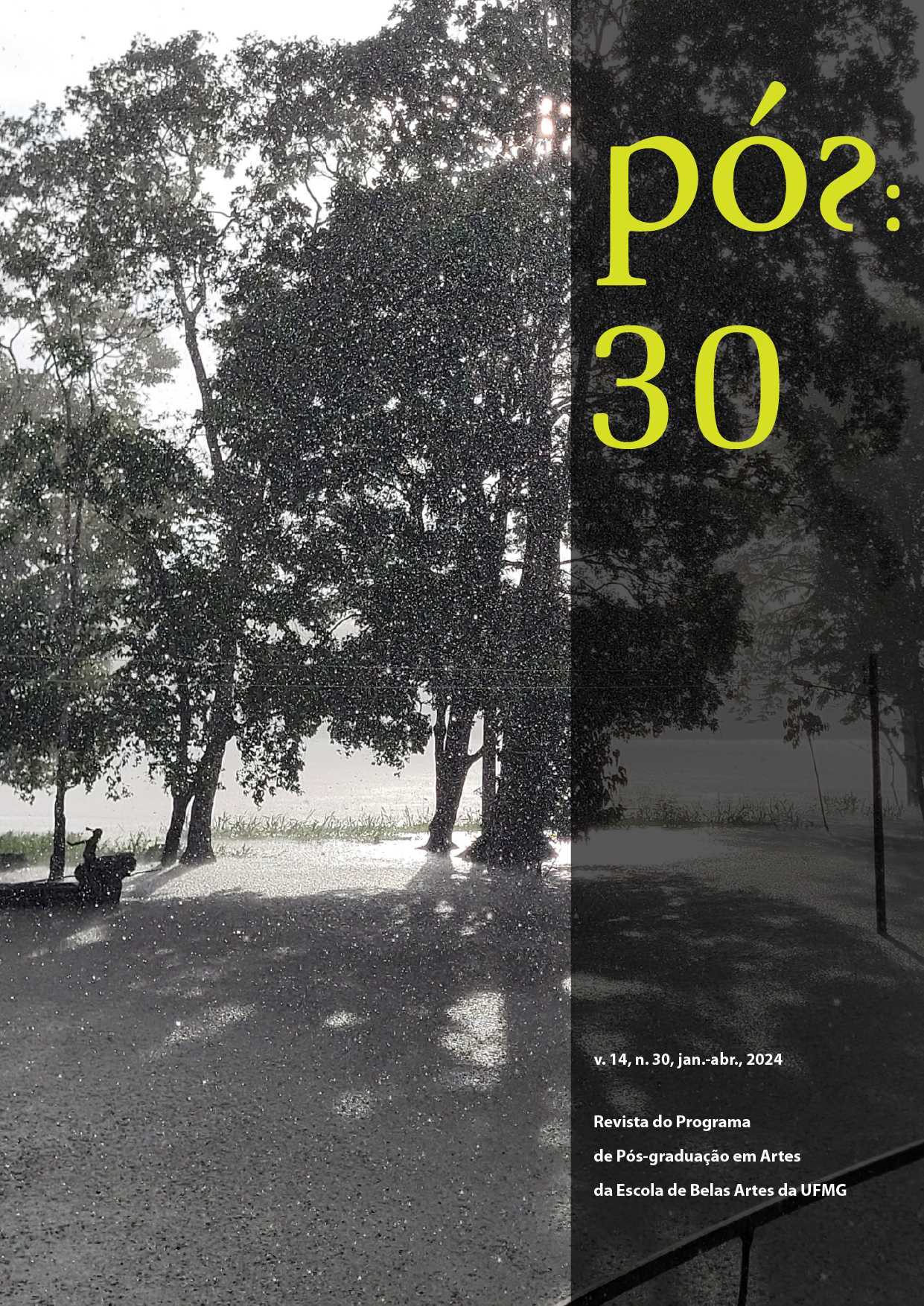Tradição e inovação
Experiência de ensino e exploração artística do crochê através da computação
DOI:
https://doi.org/10.35699/2238-2046.2024.48572Keywords:
Renda de crochê, Computação criativa, Exploração artística, Produção têxtil, Ensino de arteAbstract
This article seeks to report an experience of teaching and artistic exploration of the crochet technique through the use of a generative algorithm that produces circular crochet patterns. The experience took place during the Fashion Design course at the Federal University of Minas Gerais. Crochet as a textile technique is sedimented, leaving little space for artistic and poetic exploration. The introduction of the generative algorithm with autonomous behavior sought to provoke students' critical and artistic thinking, promoting technical thinking in a spontaneous and time-consuming way. The result was a collaborative work configured by a large crochet lace created by the students, associating tradition and innovation, that impacted the perception of the use of computing in textile artistic exploration.
References
ADAMS, Margaret O’Neill. Punch card records: Precursors of electronic records. American Archivist. 58: 182–202, 1995.
COPPOLA, SORAYA A. A. Arte, moda, ciência e tecnologia: permeabilidade e experimentação. Cienc. Cult. [online]. 2010, vol.62, n.2, pp.36-38. ISSN 0009-6725.
COPPOLA, SORAYA A. A. O fio que tece a memória. Ensino e pesquisa como eixo de rememoração da história dos materiais têxteis. V.11 n.11 (2023); Revista Cartema 11 – ISSN: 27638693. https://doi.org/10.51359/2763-8693.2023.253118
BERGAMO, Marilia Lyra.; SILVA, André Luiz. Digital Doilies: A Study of the Application of Computational Creativity to Crochet. DAT Journal, [S. l.], v. 5, n. 1, p. 138–152, 2020. DOI: 10.29147/dat.v5i1.175. Disponível em: https://datjournal.anhembi.br/dat/article/view/175. Acesso em: 18 jul. 2023.
BODEN, Margaret A. The creative mind: myths and mechanisms. 2a.ed. Londres. Routledge. 2002.
DA ROCHA, Márcio Alves; DE SANTANA, Ana Carolina. Sobre o Design Têxtil e a Computação Moderna: um recorte temporal transdisciplinar. In: Anais do V Simpósio Internacional de Inovação em Mídias Interativas. ROCHA, Cleomar (Org). Goiânia: Media Lab / UFG, 2018.. p. 416-426.
Dominguez Santana, C. C., & Alvares Coppola, S. A. (2021). Moda artesanal: explorando uma cultura regional brasileira por técnicas e saberes tradicionais. Revista Digital Do LAV, 14(1), 047–072. https://doi.org/10.5902/1983734847468
GARDNER, Martin. The Fantastic Combinations of John Conway’s New Solitaire Game of “Life”. Scientific American, p. 120-123, 1970.Disponível em: https://web.stanford.edu/class/sts145/Library/life.pdf. Acesso em: 18 jul. 2023.
HUI, Yuk. Recursivity and contingency. Rowman & Littlefield, 2019.
HUI, Yuk. Sketch of an Axiology of Contingency. Angelaki, v. 28, n. 3, p. 163-171, 2023. DOI: 10.1080/0969725X.2023.2216558
KANDINSKY, Wassily. O futuro da pintura. Leya, 2018.
KARP, Cary. Defining Crochet. Textile History. 49:2, 208-223, 2018. DOI: 10.1080/00404969.2018.1491689
KENNING, Gail Joy. Pattern as Process: An aesthetic exploration of the digital possibilities for conventional physical lace patterns. Tese (Doutorado em Artes). University of New South Wales, Australia. 2007.
KUBRUSLY, Maria Emilia; IMBROISI, Renato. Desenho de fibra: artesanato têxtil no Brasil. Senac Editoras, 2011.
LUBAR, S. ‘Do Not Fold, Spindle or Mutilate’: A cultural history of the punch card. The Journal of American Culture. 15(4): 43–55, 1992.
NOBREGA FILHO, Raimundo G.A. Evolução do Computador. 2002. Disponível em <http://www.di.ufpb.br/raimundo/Revolucao_dos_Computadores/Histpage3.htm> Acesso em 25 ago. 2018.
https://materialpublic.imd.ufrn.br/curso/disciplina/5/14/1/3
MACHADO, Arlindo. Arte e mídia. 2a.ed.. Rio de Janeiro: Jorge Zahar, 2008.
MCCORMACK, Jon. Creative Systems: A Biological Perspective. Em: T. Veale, F. A. Cardoso (eds.), Computational Creativity, Computational Synthesis and Creative Systems. Switzerland: Springer Nature, 2019.
SARKAR, P. A Brief History of Cellular Automata. ACM Computing Surveys. New York, NY, USA, v. 32, n. 1, mar. 2000, p. 80-107.
STIEGLER, Bernard. Technics and time, 1: The fault of Epimetheus. Stanford University Press, 1998.
XENÁKIS, Iánnis. Formalized Music: Thought and Mathematics in Music. Pendragon Press. New York, 1992.
Downloads
Published
Versions
- 2024-05-13 (2)
- 2024-04-01 (1)
How to Cite
Issue
Section
License
Copyright (c) 2024 André Luiz Silva, Soraya Aparecida Alvares Coppola

This work is licensed under a Creative Commons Attribution-NonCommercial 4.0 International License.
Authors who publish in this journal agree to the following terms:
- Authors retain copyright and grant the journal the right of first publication, with the work simultaneously licensed under the a Creative Commons Attribution-NonCommercial 4.0 International License that permits sharing of the work with acknowledgement of authorship and initial publication in this journal;
- Authors are permitted to enter into additional contracts separately, for non-exclusive distribution of the version of the work published in this journal (e.g., the Creative Commons Attribution License).
- Authors are permitted and encouraged to publish and distribute their work online (e.g., in institutional repositories or on their home page) at any point before or during the editorial process, as this may generate productive changes as well as increase the impact and citation of the published work.
- It is the responsibility of the authors to obtain written permission to use in their articles materials protected by copyright law. Revista PÓS is not responsible for copyright breaches made by its contributors.











